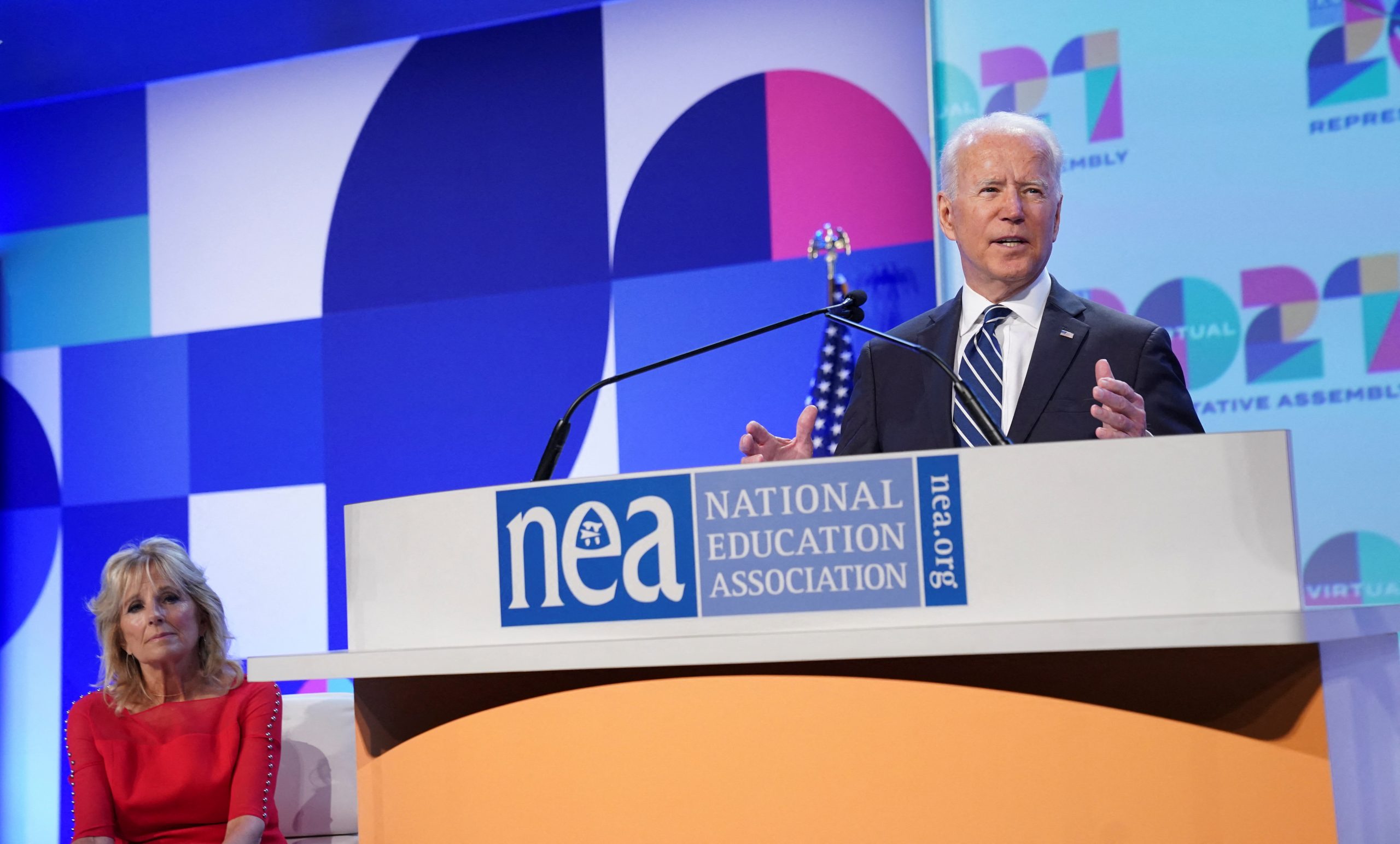
Willie R. Tubbs, FISM News
[elfsight_social_share_buttons id=”1″]
Wednesday, President Joe Biden announced that he was extending the moratorium on federal student loan repayments until mid-2022.
The pause on loans, originally initiated by then-President Donald Trump in 2020, has been extended thrice before; once by outgoing Secretary of Education Betsy DeVos and twice by the Biden Administration.
The most recent extension was set to expire on Jan. 31 but has been extended to May 1.
“We know that millions of student loan borrowers are still coping with the impacts of the pandemic and need some more time before resuming payments,” Biden said in a statement. He later added, “the Department of Education will continue working with borrowers to ensure they have the support they need to transition smoothly back into repayment and advance economic stability for their own households and for our nation.”
The move was met with tepid enthusiasm by the people the president was most directly trying to placate. Many advocates have called for the full cancellation of all federal student debt.
Rep. Alexandria Ocasio-Cortez (D-N.Y.), a leading voice among progressives, tweeted, “Thank you! Next step: cancellation.”
Thank you! Next step: cancellation https://t.co/CgHV9F2P87
— Alexandria Ocasio-Cortez (@AOC) December 22, 2021
The Debt Collective, a national union of debt holders and offshoot of Occupy Wallstreet, responded with sarcasm.
“[The extension] is a major win for 45 million student debtors and their families,” Braxton Brewington, a spokesperson for the group told CNBC. “For at least a few more months, struggling families will be able to keep tens of billions of dollars in their pockets…”
The Debt Collective has scheduled a march in Washington for Jan. 18 and has been a vocal critic of Speaker of the House Nancy Pelosi (D-Calif.), a leading opponent of student loan reform.
“Thanks to @POTUS, millions of student borrowers will have relief as we continue to battle the pandemic,” Pelosi tweeted. “I commend his action to extend the pause on student loan repayment until May and we will continue working together to make a college education affordable to all.”
Pelosi, though, has on numerous occasions expressed concern that a full cancellation would be damaging, and potentially beyond the scope of the president’s power.
Pelosi also questioned the policy wisdom of cancelling student loan debt:
“Suppose…your child just decided they, at this time, [do] not want to go to college but you’re paying taxes to forgive somebody else’s obligations. You may not be happy about that." pic.twitter.com/eArtzO3xc1
— Michael Stratford (@mstratford) July 28, 2021
The Debt Collective, though, has frequently fired back at the speaker; and on Wednesday the group refuted Pelosi’s claim:
Biden has the legal authority to eliminate all federal student debt. Arguing that Biden cannot cancel student debt would be claiming the debt he's *already* canceled was done illegally. Biden and Trump have already canceled student debt. This is not a real legal debate.
— The Debt Collective 🟥 (@StrikeDebt) December 23, 2021
Republican lawmakers were silent on the extension of the pause. The most outspoken voice on the right was Conservative host and humorist Greg Gutfeld, who blamed the universities for awarding pricey degrees that he said do not lead to high-enough paying jobs.
According to the Education Data Initiative, 43.2 million Americans have some student debt, and borrowers owe a combined $1.75 trillion (and counting) in student loans.
Education Data has found that student debt grows at six times the rate of the U.S. economy, and that on average, borrowers owe about $37,000.
In April, at the behest of Sen. Elizabeth Warren, the Education Department reported that about 36 million Americans would be totally liberated of their student loan debt if granted $50,000 in relief.
It is difficult to assess just how popular student loan forgiveness is with Americans. Polls have produced a wide array of results ranging from less than 50% support to moderate or even overwhelming support.
